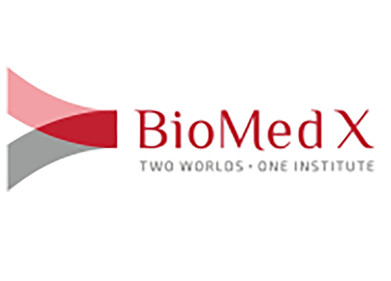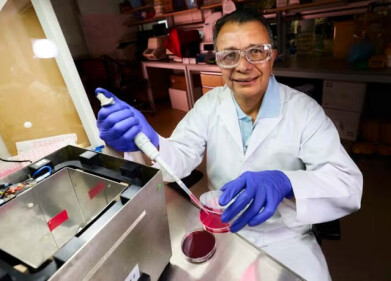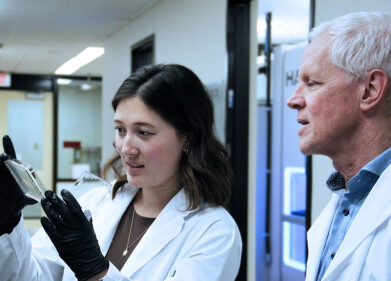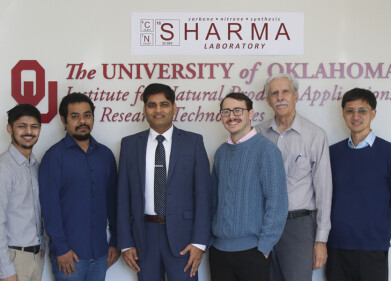-
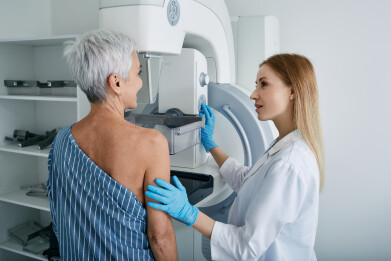 AI identified 6.7 cases of breast cancer per 1,000 women screened, compared to 5.7 cases per 1,000 detected using current standard of care. Picture: Abobe Stock
AI identified 6.7 cases of breast cancer per 1,000 women screened, compared to 5.7 cases per 1,000 detected using current standard of care. Picture: Abobe Stock
Research News
Germany’s breast cancer screening programme improved by use of AI
Jan 14 2025
The German universities of Lübeck and Schleswig-Holstein medical centre (UKSH), collaborating with a Berlin-based company Vara, have demonstrated that artificial intelligence (AI) can improve breast cancer detection rates by almost 18%.
Notably, alongside the higher rates of cancer diagnosis there was no increase in the incidence of false positives results. Published in Nature Medicine, the findings highlight AI’s potential to reduce radiologists’ workload while not compromising diagnostic integrity.
The study, called ‘PRAIM’, took data from almost half a million women who had been screened within Germany’s mammography screening programme (MSP) between 2021 and 2023. Half of the mammograms were analysed using AI, and the rest assessed by radiologists using the standard-of-care ‘double reading’ technique.
“Our initial aim was to demonstrate that AI-based evaluations are [as good as] human assessments,” explained Professor Alexander Katalinic, principal investigator and Director of the Institute of Social Medicine and Epidemiology at the University of Lübeck and UKSH, Campus Lübeck.
“However, the findings exceeded our expectations with AI significantly improving breast cancer detection rates,” he added.
ILM WEBINAR SERIES 2025 – BOOK NOW
The study revealed that AI identified 6.7 cases of breast cancer per 1,000 women screened, compared to 5.7 cases per 1,000 detected using current standard of care. This equates to one additional cancer case detected per 1,000 women screened. Importantly, the rate of women referred for further testing remained stable, with 37.4 per 1,000 for AI assessments compared to 38.3 per 1,000 for traditional double readings.
“The PRAIM study highlights the immense potential of AI to enhance screening programmes worldwide,” said Stefan Bunk, chief technology officer at Vara.
The study also found that there was potential for AI to improve the efficiency of breast cancer screening. Simulations suggested that if all cases flagged as normal by AI were not reviewed by human readers, the breast cancer detection rate would still be 16.7% higher. While unnecessary recalls for further examination could be reduced by around 15%.
Radiologists in Germany analyse around 24 million individual images each year. The deployment of AI could both streamline workloads and reduce costs to healthcare systems while treating more patients.
“We hope that enabled-AI higher detection rates will [be able to] improve outcomes in breast cancer. This will be the focus of future investigations,” said Professor Katalinic.
PRAIM is a step forward in the integration of AI into clinical practice and could offer transformational potential in enhancing cancer detection with improved efficiency while ultimately meaning better outcomes for patients.
Future research will focus on evaluating the long-term impact of AI on patient prognosis and its integration into routine clinical workflows.
For further reading please visit: 10.1038/s41591-024-03408-6
Digital Edition
Lab Asia 31.6 Dec 2024
December 2024
Chromatography Articles - Sustainable chromatography: Embracing software for greener methods Mass Spectrometry & Spectroscopy Articles - Solving industry challenges for phosphorus containi...
View all digital editions
Events
Jan 22 2025 Tokyo, Japan
Jan 22 2025 Birmingham, UK
Jan 25 2025 San Diego, CA, USA
Jan 27 2025 Dubai, UAE
Jan 29 2025 Tokyo, Japan
